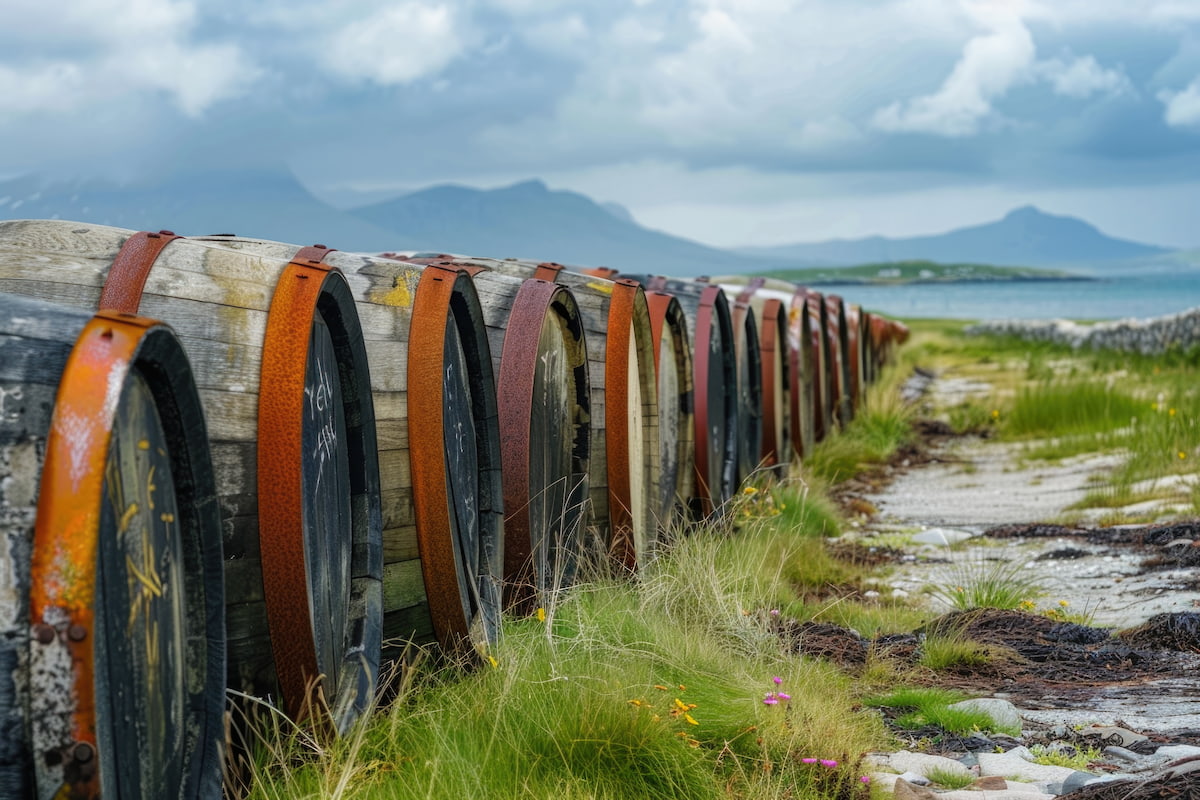Why would a distillery part with their precious whisky casks? This article delves into the various reasons, from revenue generation to brand promotion, and how these sales can benefit you. Explore the motivations behind these decisions and learn how owning a cask could be your gateway into the whisky world.
Why do distilleries sell whisky casks?
An important question when trying to understand the cask whisky industry and just how it all works.
Distilleries in Scotland that have produced casks that are available in the secondary market will typically fit into one of 4 categories;
Newly Operating - Generally a new distillery that has only been in operation for 1-10 years. Think Holyrood, Eden Mill or Isle of Harris. All exceptional whisky producers that have invested a lot of money into their operations but will struggle to see much return on that investment for 5-10 years at least while the whisky matures into something special. A much needed revenue stream while not much other income is available.
Established - A distillery that has an established business and has been operating sometimes for hundreds of years. Producing excellent whisky and they may have some core release bottles in the market place though typically would produce a high percentage of whisky to be put into blended whisky products. Think Glenlossie, Linkwood or Dailuaine to name a few. Often producing some incredible whisky but their brands are not as invested in and tend to be found mostly in independent bottlings or blended whisky.
Premium - An established distillery that invests in their own brand and the majority of their production is used for their own bottling releases. Better known in most whisky circles with brands being more recognisable. Think GlenAllachie, Ben Nevis and Mortlach to name a few. Generally you will see less casks available from these distilleries as they make use of most of their production, however, supply is still possible often through grandfathered contracts from the old days of blended whisky products being the dominant product on the market.
Ultra Premium - A distillery that has an internationally acclaimed reputation and is incredibly sought after for both drinking and collection. Think Macallan, Ardbeg, Springbank. These distilleries have invested heavily in marketing and brand over the years and have gained a glowing reputation and a huge client base, meaning demand generally always outstrips production. With this type of distillery they may have been releasing casks to the market in years gone by but have since ceased the supply as they no longer have a need for that additional revenue. We would only find casks from these brands that were released before they stopped releasing. Very rare and highly valuable.
Distilleries may sell whisky casks for several reasons, each serving different purposes and catering to diverse clientele:
- Revenue Generation: Selling casks provides distilleries with an additional stream of revenue. Some casks are sold to individual consumers, collectors, investors, businesses blending or seeking to bottle and sell their own independently bottled whisky.
- Brand Promotion and Marketing: Offering casks for sale allows distilleries to enhance their brand visibility and create connections with enthusiasts, investors, and businesses. It can be a way to engage and build relationships within the whisky community.
- Investment Opportunities: Selling casks as an investment opportunity attracts investors looking to diversify their portfolios or enter the whisky market. Some casks are sold with the anticipation of increased value over time, potentially offering financial returns.
- Clearing Inventory and Managing Stock: Distilleries may occasionally sell casks to manage their inventory or clear excess stock. This can occur due to changes in production volume, stylistic changes in whisky offerings, or to make space for new casks.
- Heritage and Tradition: For some distilleries, selling casks aligns with the tradition and heritage of the whisky-making process. It continues the legacy of maturing whisky in casks while sharing this experience with enthusiasts worldwide.
- Collaborations and Partnerships: Selling casks might involve collaborations or partnerships between distilleries and businesses. It can lead to special releases or exclusive bottlings, fostering innovation and creativity within the whisky industry.
- Honouring Existing Contracts: Many of Scotland's distilleries have been operating for over 150 years. During this time and the changing tastes of whisky consumers there have been grandfathered contracts in place for whisky supply from distilleries to blenders and bottlers alike. These contracts used to supply the many blended whisky products, though now Single Malt Whisky is the preference for most consumers there is a lot of whisky sold to contract blenders that no longer have the need for it.
Overall, selling whisky casks extends beyond a mere transaction. It encompasses aspects of brand building, customer engagement, investment opportunities, and honouring the craftsmanship and traditions within the whisky-making heritage.
You can purchase and tailor your own piece of Scotch Whisky History, get in touch with our expert team info@tailoredspirits.co.uk and we will work for you to find the perfect cask.
Bottling Guide
Download our comprehensive bottling guide to learn everything about the bottling process, from cask selection to packaging and final delivery.
Contact
Our Sales Expert
Reach out to our team for personalised advice and more information on our bespoke whisky services. We’ll help tailor the perfect experience for you.


.jpg)


